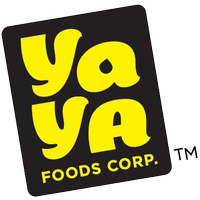There was a time when plant-based “milks” were a niche item and the subject of ridicule (you can’t milk an almond!) but over the past decade, there has been a massive market shift towards these products and away from traditional milks.
So why is this happening? And more importantly - what are plant-based “milk” beverages and how are they made?
While we can only speculate about why this shift has happened (speciality diets, health concerns, food allergies, you name it,) what we can say for sure is that part of the shift has to do with the quality of the product. While there may have been a time when plant-based dairy replacements could not match cow’s milk in texture or flavour, that era has long since passed.
Today there are almost as many plant-based beverages in the dairy case as there are varieties of cow’s milk, many of them produced in our facilities, and while they all differ slightly, they all offer a creamy texture and mild flavour that have convinced many former milk drinkers to make the switch.
How Are Plant-Based Beverages Made?
Most varieties are plant-based “milk” are made using a similar method - the source material is ground or grated, soaked in water, and then strained once you’ve reached the desired result. What is absolutely consistent, however, is how they’re packaged.
All plant-based beverages are packaged using an Aseptic processing method - meaning the product is thermally sterilized and packaged into a sterilized container, in a sterilized environment. It is because of this treatment that you are able to find some brands of nut milks outside of a refrigerated case, depending on their content, as the sterilization creates shelf-stable products.
At Ya YA Foods we recommend using Tetra Therm Aseptic VTIS Direct Ultra High-Temperature Treatment to process and package these types of products. If you’re wondering what Tetra Therm Aseptic VTIS Direct Ultra High-Temperature Treatment means, don’t worry; what you need to know is that this system, designed by Tetra Pak, uses direct steam injection coupled with an innovative cooling system to pasteurize products in under one minute (29+ minutes less than our traditional pasteurization process.)
The end result is a satisfying plant-based non-dairy beverage, packaged tidily in Tetra Pak containers of any size or shape you can imagine.
As the demand for plant-based milk beverages continues to grow, however, the technology involved in manufacturing and packaging them will continue to advance and change - and we plan to advance with it. Keep an eye on this space as we reveal more insights into new technology, how we make your favourite beverages and liquid food products, and more.
